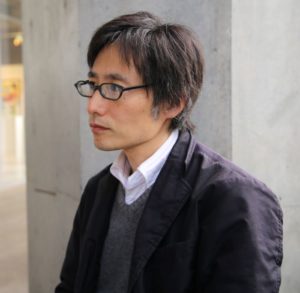
Foto: Enno Schmidt
In his new paper: “Is a Penny a Month a Basic Income? A Historiography of the Concept of a Threshold in Basic Income“, Prof. Toru Yamamori examines the definition of Universal Basic Income under the question of a threshold. Based on its basic pillars: unconditionality, individuality, and universality, he discusses the advantages and disadvantages of a threshold and gives a historical overview of the history and different currents of the demand and definition of a Universal Basic Income. With this paper, he is the winner of the 2021 BIS essay contest in the Journal “Basic Income Studies”.
Without the (re)definition, do we run the risk of calling even one cent a Universal Basic Income when it is paid unconditionally and universally to every individual? What are the reasons and arguments for successively removing this threshold from the definitions? Toru Yamamori discusses why and whether we should reintroduce a threshold into the definition of a Universal Basic Income in this paper, which was awarded the prize for the best paper of 2021 by the journal Basic Income Studies published by De Gruyter Verlag.
The question of the definition of Universal Basic Income is a central theme of the FRIBIS UBI & Gender team, which explores the pillars of definition: universality, unconditionality and individuality from an intersectional feminist perspective. With his historical analysis of the meaning of a threshold, Toru Yamamori has created a starting point for further reflections on the definition of what we call Universal Basic Income from different situations, perspectives and locations, and what this Basic Income means for each of us.
Find the Paper here: https://www.degruyter.com/document/doi/10.1515/bis-2021-0037/html
Jessica Schulz is the team coordinator of the Gender & UBI Team and interviewed Toru with respect to his paper.
How did you come to deal with this question of a threshold in particular?
I’ve known that it was common to define UBI with a threshold in 1980s, and has interpreted the non-threshold definition by BIEN as a result of the difficulty of havin g a consensus on what level the threshold would be. However, by witnessing that some leading advocates condemn the definition with a threshold as ‘flawed’ and deny the existence of what I thought a historical fact, I felt to research this issue seriously.
To what extent is the question of a threshold value related to feminist questions about the unconditional basic income?
In the 1970s and 80s in Europe, there were feminist movements that demanded UBI. All of them defined UBI with a threshold. However, those movements have been almost erased both in UBI communities and feminist academia. There might be a logical connection between the easement of those feminist voices and the denial of (and historical revisionism against) the definition of UBI with a threshold. Also, what I learnt through this historical journey, the concept of UBI is a social construct, and what has been included under the label of UBI is not clear cut. Accepting this plurality of the concept, we could ask the following question: What definition of UBI could feminists embrace?
Prof. Dr. Toru Yamamori is a Professor of Economics at Doshisha University in Kyoto, Japan and Senior Academic Research Editor of BIEN (Basic Income Earth Network). His research includes the philosophical foundations of feminist economics and the oral history of the working class women’s liberation movement that called for unconditional basic income in Britain in the 1970s.